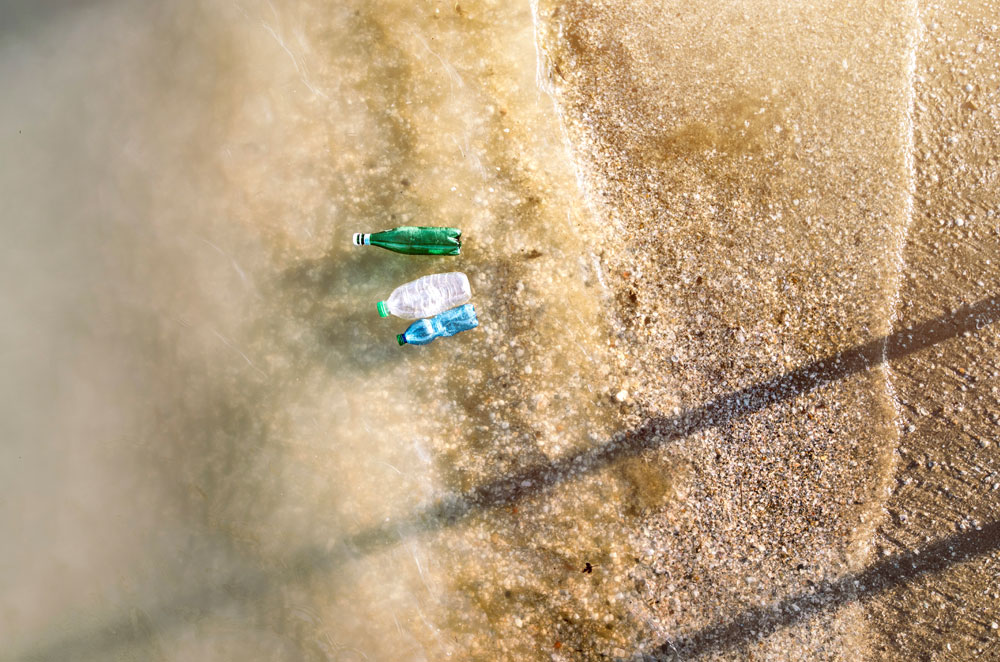
Human waste on Marine life is the tragedy of human life on this planet. The day we control it in a managed methodology, will be the day we can call ourselves an important part of mother nature. Trash can travel across the globe through our oceans and rivers. They keep accumulating in these water bodies while polluting the water that kills the most beautiful aquatic life on this globe. Accruing on the beaches, this debris creates chemical pollutants that threaten the lives of flora and fauna. This is even affecting the economic structures worldwide.
Just like how a human body is 70% water, the same way is our planet with 70% water around us. The water bodies maintain the health of the inhabitants but unfortunately, it is now polluted by human waste. According to a recent survey by National Oceanic and Atmospheric Administration, billions of tonnes of trash and other pollutants are thrown in our oceans.
The impact of Marine pollution is huge on us and the generations to come. It is a combination of trash and chemicals – mostly entering the oceans from lands. Let us take a closer look at the sources of these pollutants.
Toxic waste is released by many manufacturing plants around the world and this includes harmful chemicals like mercury and plastics. These units have a planned system of waste disposal and it includes dumping their waste in the nearby water bodies. A study conducted by Ocean Conservancy implied that more than eight million tons of plastic enter our oceans every year.
Plastics have a direct deadly impact on our marine wildlife. Animals like seals, sea turtles, and seabirds, etc are being killed each year. They either choke on these plastics or get entangled in them. Many endangered wildlife are also on the verge of extinction due to plastic litter.
Deep-sea mining disrupts the lowest level of the ocean bed. The miners drill the ocean bed for substances like zinc, copper, cobalt, gold, and silver. This act leads to the creation of harmful sulfide deposits in the ocean impairing the marine life here.

This pollution is caused by various sources and locations. When rain and snow move pollutants from the ground into the sea the result is runoff. After a heavy rainfall when the water flows off the roads and into the oceans, it takes with it the oil and many other chemicals left on the streets by cars. These chemicals form a layer in the oceans making the life of aquatic organisms difficult. This is just one scenario where you can notice the runoff discharge. There are millions of other ways that humans knowingly or unknowingly discharge harmful waste in the oceans.
Humans are the main cause of oceanic pollution and yes!! Littering cannot be left behind. Using plastics and styrofoam in almost all our products and services are harming nature more than we can ever imagine. These chemicals cannot decompose and the only way to reduce them is to either recycle the used plastic or to completely ban this chemical.
The decomposition of debris takes years together and it requires a lot of oxygen in the process. This results in the depletion of oxygen levels in the oceans. These low oxygen levels lead to the death of aquatic animals like Penguins, sharks, whales, and Dolphins. The increase of other chemicals like mercury, nitrogen, and phosphorus in the seawater causes oxygen depletion too. When the oxygen depletion is quite high in a particular area it becomes a dead zone – where no marine life can survive.
Human waste on Marine life is a two-way road. When we pollute the oceans the nature has its way of giving it back to us. Small organisms in the water bodies ingest chemicals and toxins and are eaten by predators. These predators are consumed as seafood by humans. These toxins from contaminated sea animals are deposited in the human tissues. Leading to long-term health conditions like cancer and birth defects.
Leave a Reply